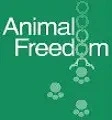A source of the underestimation of animal suffering |
The denial of injustice
Most of my friends aren't vegans or even vegetarians. For me personally this does not constitute an obstacle for mutual friendship, but it has made me ponder: How is it possible that someone can be an involved and sympathetic friend of mine and that he or she at the same time is not aware of the ubiquitous consequences of speciesism. I have tried to diplomatically translate this for my friends in the concrete question: "How come you are not a vegetarian?" Time and again I got the answer: "Because I just like meat too much!" A response that shocked me because of the shameless selfishness that seems to echo in it, but which precisely for this reason made me think about it more deeply. I simply could not believe that my helpful and kind friends, neighbours and colleagues were in fact nothing more than nasty egoists. Instead, I tried to find another explanation within social psychology. That's what this essay is about. |
A just reality
People are social beings with a large need for security in a social group. We share this need with other social animal species. Just like for example dogs we have a natural drive to feel safe within a secure community, regardless of whether this is a village community, a philosophical or political movement or a small circle of intimate friends. It does not only concern physical safety, but certainly emotional security as well. This means that the person needs to feel supported by the community, that he or she can in a sense identify with it, and sympathizes with it. It does not directly imply a need to idealize the person's own group, but the image one has of it should primarily be positive. |
One of the main social values consists of the principle of justice. If a person does not experience the members of group or circle to which he or she wants to feel connected as honest and reasonable, this actually means that it is impossible for that person to feel safe within that community. If the idea of one's own group or society being essentially just seems threatened, this can therefore lead to serious emotional problems. For instance, children of war criminals can take refuge with the psychological defense mechanism of denial. This means that they deny against all reason that their parent really is guilty as charged. The need for security within the relationship in question (even if this relationship has already been ended physically through death) can thus be much stronger than the realistic view of justice. |
There is also the opposite phenomenon: someone who has been harmed by persons or institutions which are experienced as representatives of the safe social order, very soon gets to hear that he probably will have caused his own problems, even if the facts definitely go against this interpretation. This also explains the lack of understanding of satisfied neo-capitalist voters for "antisocial" elements such as the unemployed, asylum seekers and the homeless.
 Within a philosophical context this in itself absolutely legitimate psychological need for security affects questions such as how a just divinity can allow all kinds of horrors to happen on earth. This question of the position of Evil within reality is known as the theodicy. The Roman Catholic French philosopher De Malebranche applied the theodicy to the ubiquitous suffering of animals in nature. In nature, many animals die early and painfully and most animals are exposed at least several times to hunger, thirst, pain, fear, cold, heat, disease, frustration, etc. We can't refer to a hypothetical 'own fault' of these individual animals because, according to this philosopher, they don't possess any free will and therefore they can't sin either. This means it is absolutely unjust that they are suffering. However, this can't be harmonized, according to De Malebranche, with the existence of a just God and therefore there either cannot be any (just) God -something which is of course excluded a priori by this Catholic philosopher- or the apparent animal suffering is in fact unreal. Meaning that animals cannot suffer, in other words that they are simply soulless automata, as Descartes had already been proclaiming. Within a philosophical context this in itself absolutely legitimate psychological need for security affects questions such as how a just divinity can allow all kinds of horrors to happen on earth. This question of the position of Evil within reality is known as the theodicy. The Roman Catholic French philosopher De Malebranche applied the theodicy to the ubiquitous suffering of animals in nature. In nature, many animals die early and painfully and most animals are exposed at least several times to hunger, thirst, pain, fear, cold, heat, disease, frustration, etc. We can't refer to a hypothetical 'own fault' of these individual animals because, according to this philosopher, they don't possess any free will and therefore they can't sin either. This means it is absolutely unjust that they are suffering. However, this can't be harmonized, according to De Malebranche, with the existence of a just God and therefore there either cannot be any (just) God -something which is of course excluded a priori by this Catholic philosopher- or the apparent animal suffering is in fact unreal. Meaning that animals cannot suffer, in other words that they are simply soulless automata, as Descartes had already been proclaiming.
People want to feel safe in a humane, fair community and they are prepared to adopt very absurd forms of repression to safeguard this feeling. This is because the lack of security leads to a form of existential anxiety. This is the fear of having to live in an essentially unjust reality which does not care about the interests and emotions of individuals like ourselves and our loved ones. Therefore I believe that it is paramount to completely acknowledge the human need for security but without closing our eyes to injustice within societal reality. |
Courage
The 'solution' which De Malebranche fabricated for the question of animal suffering was in fact inspired by some type of cowardice. He implicitly recognized his need for a life within a just creational order, but he refuses to recognize that unfortunately nature does not immediately bear witness to such an order. To achieve this, he abuses his intelligence in an equally ingenious and perverse manner. Something similar applies to all those who actually know that the human treatment of animals is structurally immoral, but who (either unconsciously or consciously) find it more emotionally comfortable simply not to look at it.
We should realize that they are victims of the same kind of defense mechanism as the one that affected the French philosopher, even though we aren't concerned with an order of creation but with human civilization. As I said before, from a psychological point of view, it is useless to underestimate the need for security which is shown through such phenomena. Instead, we should realize that it takes courage to postpone the fulfillment of that need and to face the often harsh reality. |
Security
It is important to notice that many people are afraid to fully grasp the meaning of speciesist reality, as such an insight would uncover to what extent contemporary society is still removed from a just and therefore also safe and secure reality. Rather than chasing away non-vegetarians and non-vegans by personal criticism and intolerance, we should try to make them feel secure and at home among anti-speciesists. That way, as occurs when we pursue the great humanist ideals, it will hopefully become clear that people first of all need to create a just reality themselves. And that the secure reality that people are looking for is not primarily something we undergo passively, but rather the fruit of our own action. The safer and more appreciated the non-vegan feels among vegans, the more she will be inclined to gradually overcome her denial of animal suffering. |
|
|

